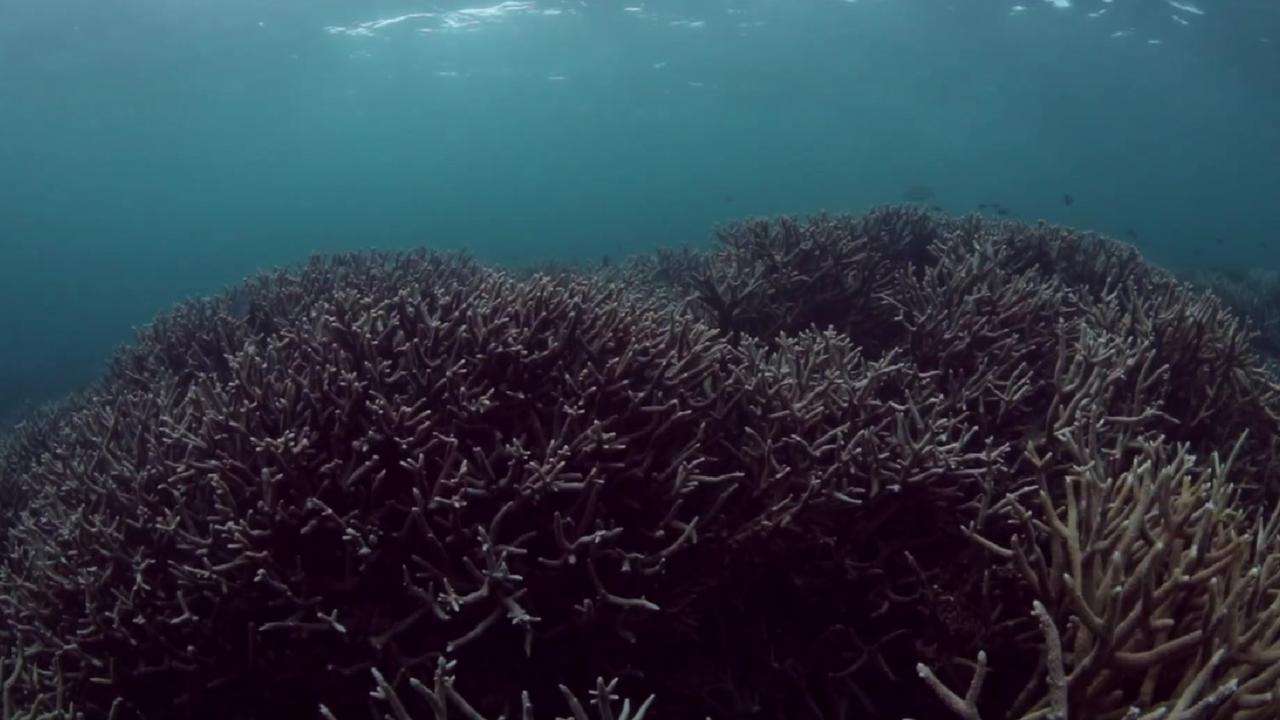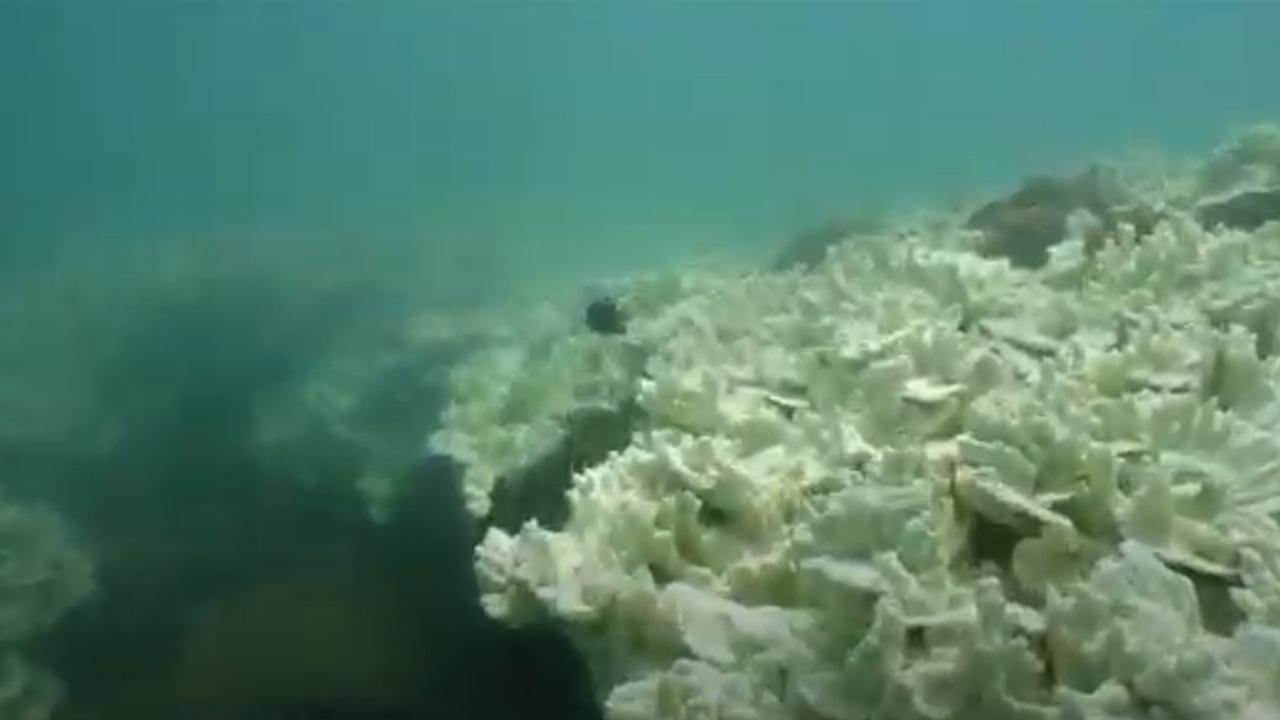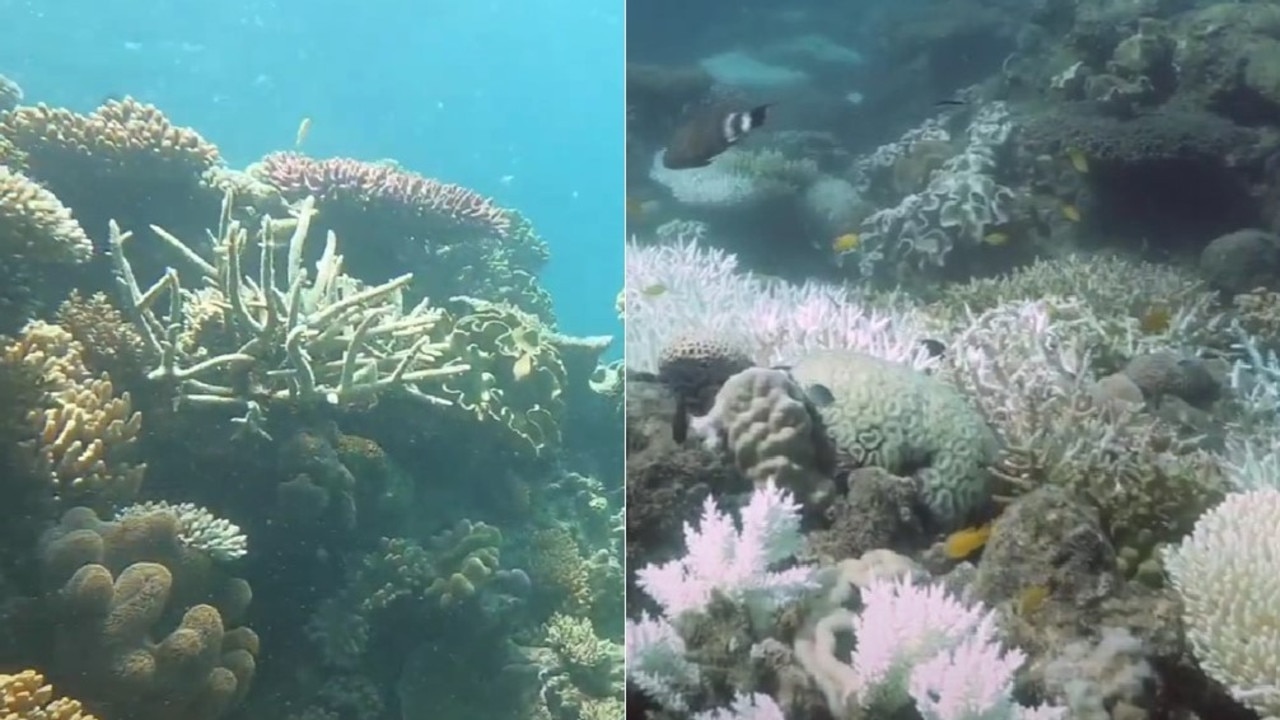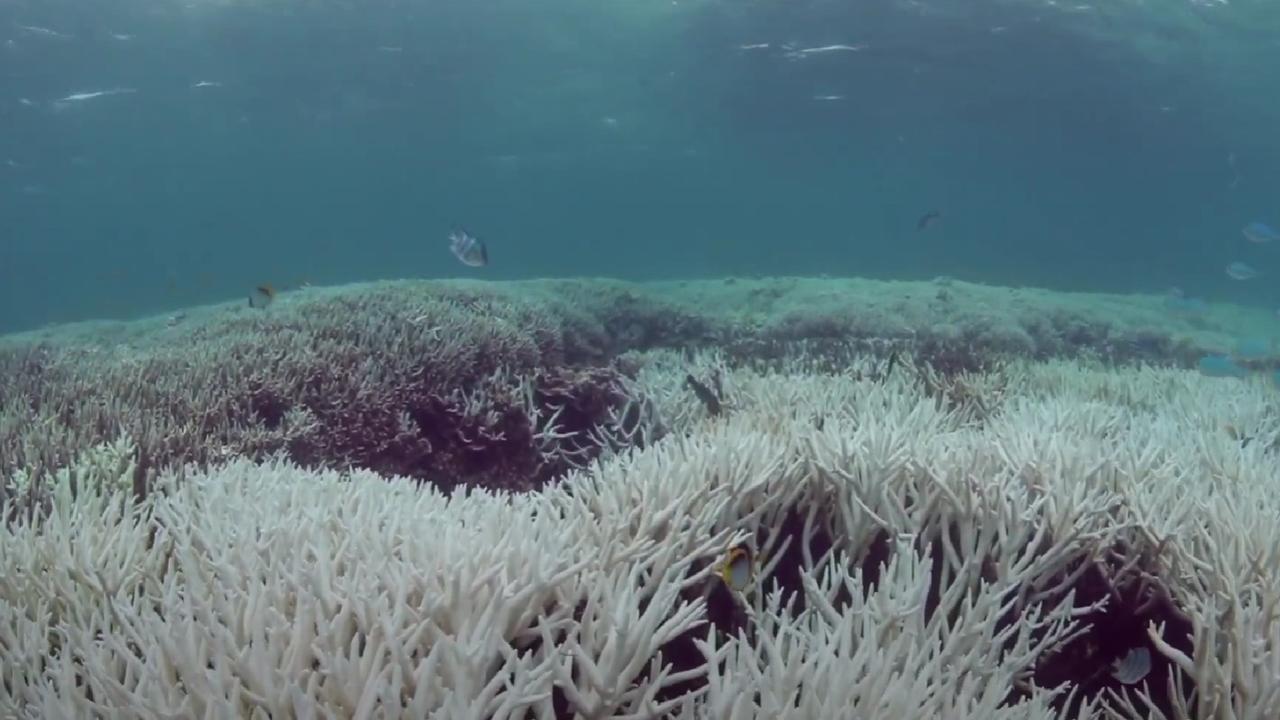Great Barrier Reef being ‘cooked’ by an ‘underwater bushfire’ that can’t be put out, scientists say
Disturbing new footage of one of Australia’s natural wonders has been released — and it has horrified scientists.
Disturbing new footage of one of Australia’s most iconic natural wonders has been released — and it has horrified scientists warning of an “underwater bushfire”.
It shows that mass coral bleaching on the Great Barrier Reef now stretches more than 1100 kilometres from Lizard Island, off the coast to the northeast of Cooktown, down to the Keppel Islands near Yeppoon.
And with an ominous marine forecast for the coming weeks, authorities could declare another mass bleaching event.

Reef expert Dr Dean Miller said the reef’s most vulnerable corals are beginning to bleach, which is “alarming”.
“It’s not just about how many corals are bleaching, but that the ones most at risk are suffering,” Dr Miller said.
“This stress is affecting corals of all sizes, from the largest ones that have survived past bleaching events to the smallest, youngest corals.”
If heat stress continues, more widespread bleaching is likely and this will affect a higher diversity of coral species, he said.
“That is a major concern for the reef’s health and ultimately its resilience”
Macquarie University biologist Professor Lesley Hughes said the iconic and “irreplaceable” reef is in “grace danger”.
“Many Queensland workers and communities rely directly on it for their livelihoods, and every one of us depends on a healthy ocean,” Prof Hughes said.
“Scientists and tour operators are being brought to tears by what they’re observing.”

Repeated marine heatwaves and mass bleaching events have already changed the composition and diversity of the “once-mighty Reef”, she said.
Back in October, a group of leading experts warned of the possibility of a major marine heat event across the country in an open letter to Environment Minister Tanya Plibersek.
The scientists from the Great Southern Reef research collective warned that the looming threat would be like an “underwater bushfire that can’t be extinguished”.
Dr Stuart Kininmonth is the research centre manager on Heron Island and has observed “research sites (that) are all bleached down to (a depth) of six metres”.

There have been four mass coral bleaching events on the Great Barrier Reef in the past eight years, which scientists say means species don’t have enough time to recover.
Climate Council chief executive Amanda McKenzie described current bleaching as “severe” and said high ocean temperatures are “literally cooking” coral.
Ms McKenzie blamed “relentless pollution from coal, oil and gas” and said Australia’s environmental protection laws are outdated and “in desperate need of an overhaul”.
“At least five coal and gas projects have been waved through under our outdated law by the Federal Government since it was elected, and more than 20 other highly polluting proposals are sitting on the Environment Minister’s desk right now,” she said.
“These projects will keep being waved through without stronger laws, endangering our Reef, all marine life and the livelihoods of Queenslanders who depend on a healthy, vibrant reef.
“Australians expect our national environment law will protect the precious natural environments like the Great Barrier Reef, and the numerous communities that depend upon it – not destroy them.
“Unless this law is fixed to make climate pollution a core consideration, the Great Barrier Reef will continue to deteriorate before our children’s eyes.”

Oceans absorb about 90 per cent of atmospheric heat.
Last week, the Great Barrier Reef Management Authority ordered widespread aerial surveillance efforts across the full length of the marine park to gauge the severity of bleaching.
Dr Neal Cantin, a senior research scientist at the Australian Institute of Marine Science, was on a helicopter involved in the surveillance and said he saw deep bleached corals “quite clearly”.
Prof Hughes said the reef can be restored but it requires at least a decade to recover from a severe bleaching event.
“The only way to ensure that can happen is to rapidly reduce climate pollution from coal, oil and gas. The only way to safeguard the Great Barrier Reef as well as everyone and everything that depends on it is to cut climate pollution at the source.”






